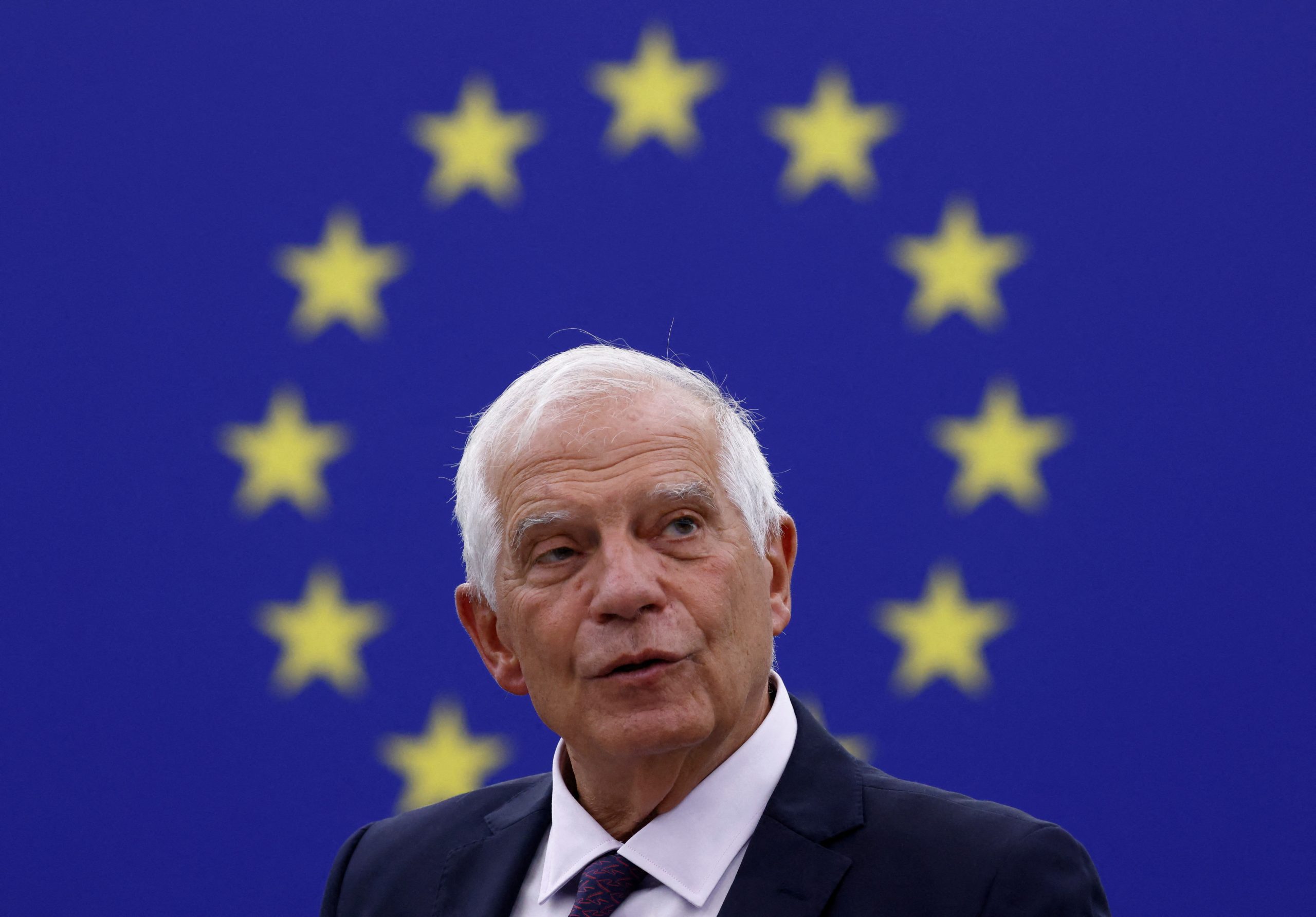European Observatory to Combat Radicalization – EOCR
Fight against money laundering and terrorist financing in the EU
consilium.europa.eu – The EU’s rules on anti money laundering and countering terrorist financing protect its financial system and contribute to security and growth.
EU fight against money laundering
Money laundering and the financing of terrorism are major concerns for the EU. They pose major risks to the EU’s economy and financial system and to the security of its citizens.For over thirty years, the fight against money laundering and terrorist financing has been high on the EU’s political agenda, with the first anti-money-laundering directive (AMLD) being adopted in 1991. Since then, the directive has undergone several reforms.
To ensure that all related risks are correctly tackled, the EU’s rules need to continuously adapt to emerging risks, including risks related to:
- technological innovation – such as virtual currencies
- the global nature of terrorist organisations
- the ingenuity of criminals in exploiting gaps or loopholes in the system
EU anti-money-laundering rules
In July 2021, the European Commission proposed a package of legislative proposals to further strengthen and better enforce the EU’s rules on anti money laundering and countering terrorist financing (AML/CFT).
The package includes:
- a regulation to create an EU anti-money-laundering authority
- a regulation on anti-money-laundering requirements for the private sector
- a directive on anti-money-laundering mechanisms
- a revision of the regulation on transfers of funds
The Commission package built upon its 2020 action plan and several sets of Council conclusions, including the Council conclusions of 5 November 2020.
On 18 January 2024 the Council and the Parliament reached a provisional agreement on the anti-money laundering package. If approved by member states’ representatives in the Committee of Permanent Representatives and the Parliament, the Council and the Parliament will have to formally adopt the texts before they are published in the Official Journal of the EU and enter into force. For the time being, the provisional agreement contains no mention of the decision on the seat of the new authority, a process that has been taking place in parallel, and which is expected to come to a conclusion on 22 February 2024.
Anti-money-laundering regulation
The new regulation on combating money laundering and the financing of terrorism harmonises and clarifies the rules in force across the EU and aims to ensure that the rules apply more consistently and are better enforced. For example, it contains more detailed provisions on customer due diligence and beneficial ownership and on the powers of national supervisors and financial intelligence units (FIUs).
Obliged entities
Through the new regulation, the EU is establishing a directly applicable regulatory framework with requirements for obliged entities – mainly credit and financial institutions and designated non-financial businesses and professions (e.g. lawyers and accountants). These entities play a central role as gatekeepers in the AML/CTF framework as they have a privileged position for detecting suspicious activities.The new rules will also cover most of the crypto-sector. All crypto-asset service providers will need to conduct due diligence on their customers. This means that they have to verify facts about their customers and report any suspicions to FIUs.
Other sectors concerned by customer due diligence and reporting obligations are traders in luxury goods such as precious metals and stones, jewellers and goldsmiths. Traders in luxury cars, airplanes and yachts, as well as in cultural goods (such as artworks) will also become obliged entities.The regulation recognises that the football sector represents a high risk and expands the list of obliged entities to include professional football clubs and agents. However, as the sector and its risk are subject to wide variations, member states will have the flexibility to remove them from the list if they represent a low risk.
Beneficial ownership
Beneficial ownership refers to persons who actually control or enjoy the benefits of ownership of a legal entity (such as a company, foundation or trust), while the title or property is in another person’s name.The regulation aims to make the EU rules on beneficial ownership more harmonised and more transparent.The two components of beneficial ownership – ownership and control – will need to be analysed in order to identify all the beneficial owners of that legal entity or across types of entities, including non-EU entities when they do business in the EU or purchase real estate in the EU. The agreement sets the beneficial ownership threshold at 25%.
Related rules applicable to multi-layered ownership and control structures are also clarified to make sure that hiding behind multiple layers of ownership of companies won’t work anymore. In parallel, data protection and record retention provisions are clarified to make the work of the competent authorities easier and faster.
Cash payments
Cash payments will be subject to an EU-wide maximum limit of €10 000 in order to make it more difficult for criminals to launder dirty money. Member states will have the flexibility to impose a lower maximum limit if they wish.
High-risk third countries
Obliged entities will be required to apply enhanced due diligence measures to occasional transactions and business relationships involving high-risk third countries whose shortcomings in their national anti-money laundering and counter-terrorism regimes make them a threat to the integrity of the EU’s internal market.The Commission will make an assessment of the risk, based on the financial action task force (FATF) listings. Furthermore, a high level of risk will justify the application of additional specific EU or national countermeasures, whether at the level of the obliged entities or by the member states.
Anti-money-laundering directive
Together with the regulation, the directive on anti-money-laundering mechanisms will be part of an AML ‘single rulebook’. It is set to replace the fifth anti-money laundering directive, adopted in 2018.All rules applying to the private sector will be transferred to the regulation, while the directive deals with the organisation of institutional AML/CFT systems at national level in the member states. The directive therefore contains provisions to be transposed into national law, such as rules on beneficial ownership registers, national supervisors and the responsibilities of FIUs.
Information on transfers of funds
On 29 June 2022, the Council and the Parliament reached a provisional agreement on an update of the EU regulation on information accompanying the transfers of funds, extending its scope to transfers of crypto-assets.The introduce an obligation for crypto-asset service providers to collect and make accessible certain information about the originators and beneficiaries involved in the crypto-asset transfers operated by them. This will ensure that crypto-asset transfers are traceable so that it is easier to identify potentially suspicious transactions and block them.rules
The EU now has a solid and proportional framework that complies with the most demanding international standards on the exchange of crypto-assets and, in particular, follows recommendations made by the FATF, the global money-laundering and terrorist-financing watchdog.
Other legislative updates relevant for AML/CFT
The fifth capital requirements directive clarifies the role of prudential supervisors. Prudential supervisors are responsible for identifying and correcting weaknesses in financial institutions involved in money laundering and terrorist financing. Competent authorities must factor these concerns into their supervisory activities.The directive on facilitating the use of financial information for combating crime makes it easier for competent authorities to access and use financial and bank account information. It also facilitates access to law enforcement information by national FIUs.
Anti-money-laundering authority
A new anti-money-laundering authority (AMLA) will be set up to improve AML/CFT supervision in the EU and support cooperation between FIUs.As money laundering is a cross-border financial crime, AMLA will strengthen the EU’s AML/CFT framework by creating an integrated mechanism with national supervisors in the member states to ensure that obliged entities comply with their obligations.
AMLA’s role will be to:
- directly supervise some of the riskiest credit and financial institutions in the EU, including crypto-asset service providers
- play a supporting role for the non-financial sector
- coordinate FIUs in the member states
- impose pecuniary sanctions in the event of serious breaches
The creation of AMLA was proposed as part of the Commission package of legislative proposals on AML/CTF in 2021. The Council and the Parliament reached a provisional agreement on creating AMLA on 13 December 2023. Shortly after that, on 18 December 2023, Council and Parliament representatives reached a common understanding on the process for selecting the seat of AMLA.
European Observatory to Combat Radicalization – EOCR




